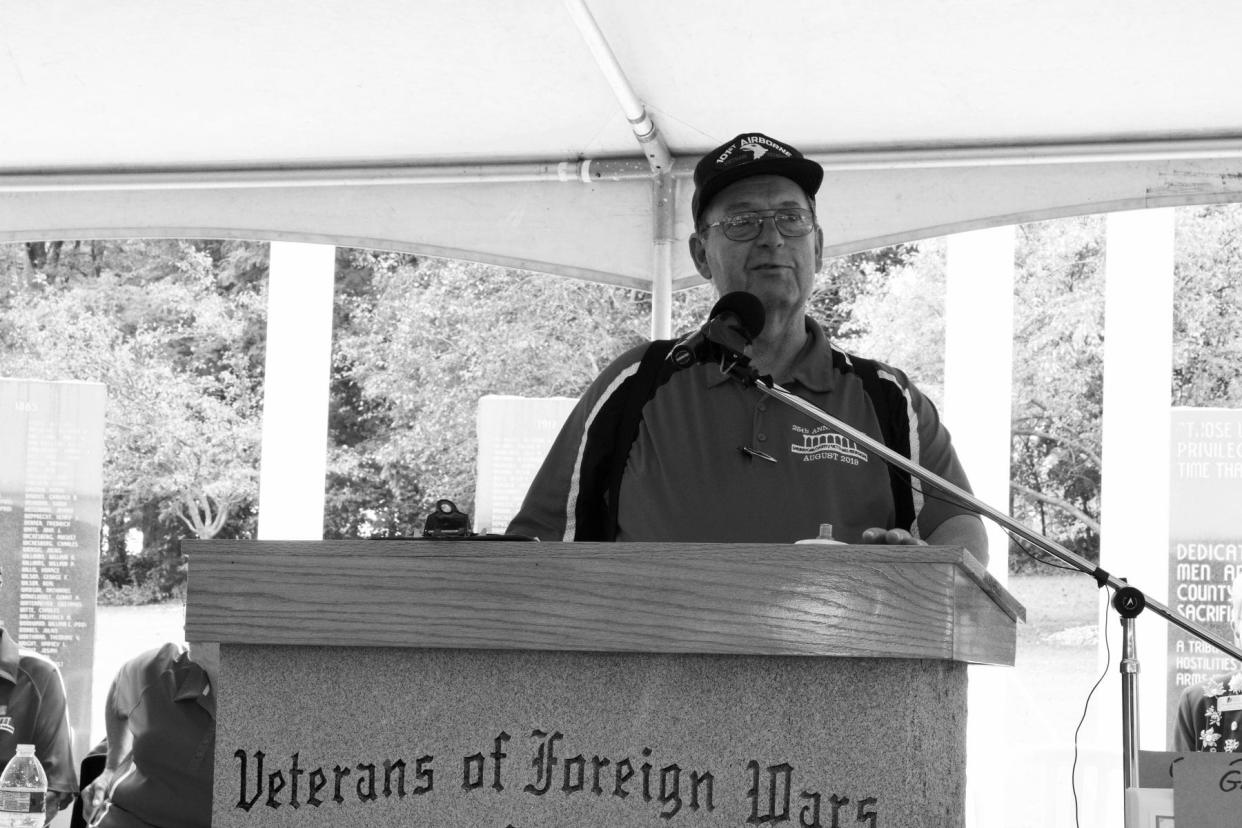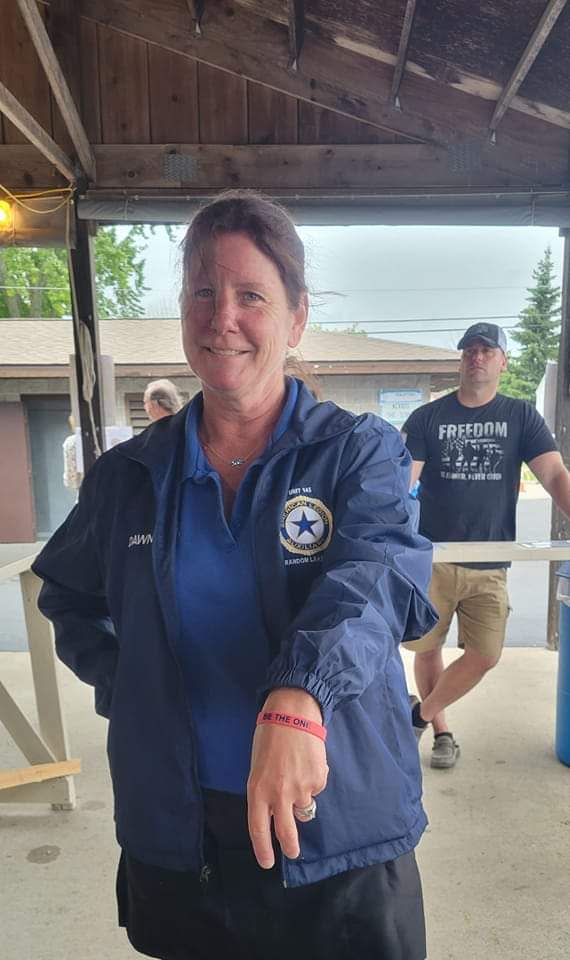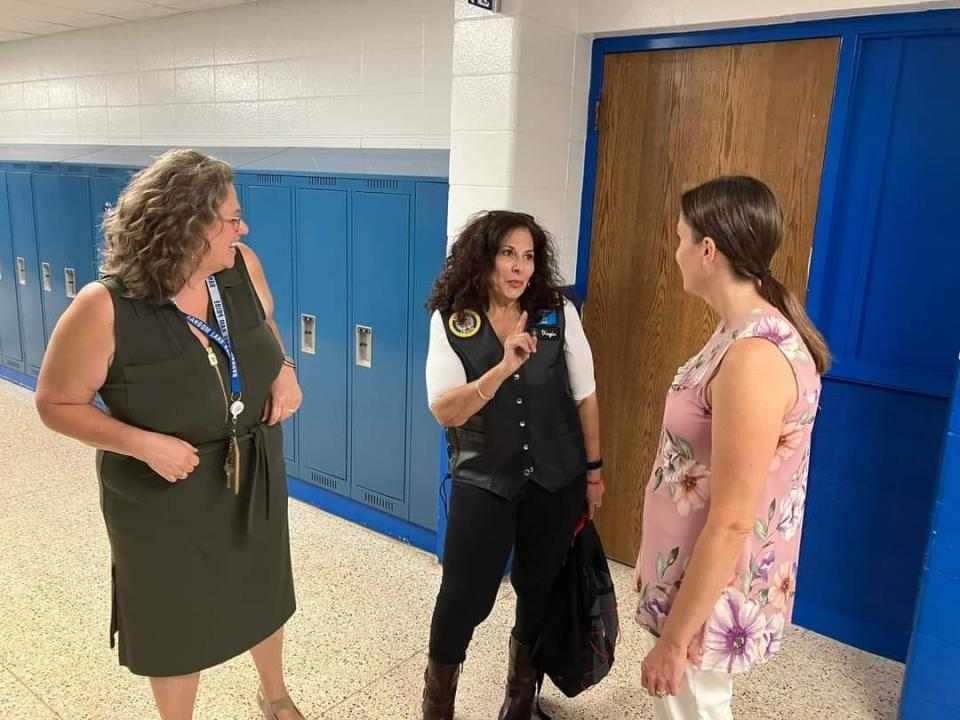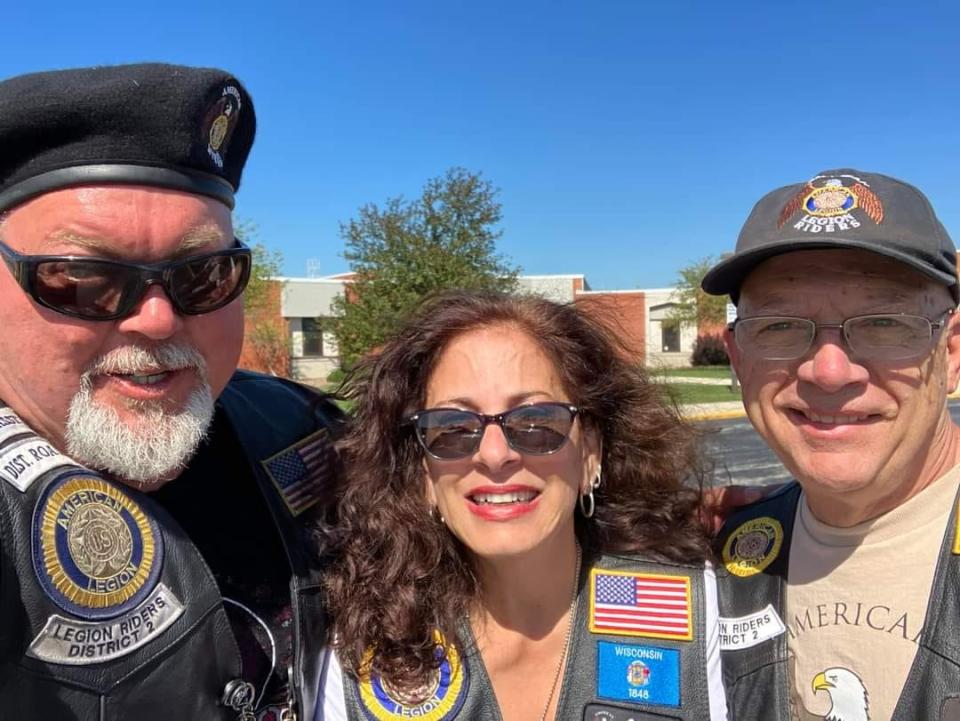17 veterans die by suicide each day. These Sheboygan veterans aim to save lives and keep vets from believing ‘they’re not worth anything.’

SHEBOYGAN COUNTY - Allen Nohl, 71, didn’t talk about Vietnam when he came home to the United States.
“Because then people knew who you were, and if they did, they would at times ridicule you,” Nohl said. “And then they would get friends behind them. All of a sudden, you had 10-20 people start barking at you and everything else."
With the anti-war movement and public opposition to the United States' involvement in the Vietnam War, many veterans coming home didn't share that they were soldiers for fear of hostility.
Carrying that stigma led Nohl to stay quiet about what he saw and experienced in Vietnam. He said for the first 15 years of being home, a lot of his friends didn't know what happened to him.
In 1970, he went to Vietnam as a Huey helicopter mechanic after enlisting in the U.S. Army and completing computer programming school in 1969. He said he was there for five months, until his helicopter was in a mid-air crash. Of the eight crew members involved in the crash, he was the sole survivor.
In addition to the crash, Nohl said he doesn't want to remember some other situations from his time in Vietnam, but "that's part of life."
"When you go to a war or war zone, them things are going to happen," he said. "You got to be prepared for that. And it's hard. You try to be an Iron Man, tough man."
Dealing with what happened in Vietnam is still a struggle, but in the last 20 years, Nohl has opened up more to his friends, he said.
YiaYia Wischki, 63, also didn't share she was a veteran for a long time. Being in the military wasn't celebrated in her family's Greek culture, and they didn't understand what post-traumatic stress disorder was, she said.
Wischki was stationed at the Seventh Corps in Stuttgart, Germany, in 1977, where she worked in offset printing.
While in the Army, she said she experienced a military sexual trauma incident.
The U.S. Department of Veterans Affairs uses the term "military sexual trauma," or MST, to refer to "sexual assault or sexual harassment experienced during military service." MST also includes "any sexual activity during military service in which you are involved against your will or when unable to say no."
After the incident, Wischki struggled with trusting others and was on guard. There are times she still has extreme sensitivity with tinnitus, a condition that induces a constant ringing sound in the ear, trouble sleeping and PTSD-related nightmares.
"There have been times I've had to pull off the side of the road and just stop because there was a song or a smell or a sign," Wischki said. "I don't know. But all of a sudden, I'm spinning. That's the word.
"I can't listen to loud music late at night it becomes too anxious for me," she continued. "And if I feel shamed in any way, my ass is up all night. Trying, talking to myself out loud, trying to defend myself because in the moment all I could do was run and hide or put on a mask."
Wischki said she wishes she'd known what PTSD was and had someone to talk to.
"(Someone) to go, ‘Hey, girl, I know what you're going through. This is how it is for me,'" she said. "It may not be the same, but at least you know you're not alone,”
Saving veteran lives
Today, Nohl, who is Sheboygan County Veterans Memorial Board president, and Wischki, who is Sheboygan County adjutant to the American Legion, are part of a local Be the One effort among veterans and American Legions in Sheboygan County to start mental health conversations among veterans.
The goal: save veteran lives.

In 2019, an average of 17.2 veterans died by suicide each day, according to the VA’s 2021 National Veteran Suicide Prevention Annual Report.
The high rate of suicide among veterans has been known for decades, Wischki said. But the isolation experienced during the COVID-19 pandemic, a shortage of mental health providers at the VA and many veterans’ lack of trust created the need for Be the One.
Not all veterans are comfortable talking with licensed mental health providers, despite resources being available through outreach efforts, like the Wisconsin Medical College and Wisconsin VA.
“Regarding trust, regarding talking, because of the feeling of shame, we're going to talk to one another before we're going to talk to somebody else,” Wischki said.
Nohl said some Vietnam War veterans are still hesitant to talk with non-veterans.
“They still carry that stigma in a way," he said. "They don't want to be known."
Talking with others who've had similar experiences, however, has helped Nohl.
“He's just an average Joe off the street, like me,” he said. “I'm not a professor, psychologist, Ph.D. type thing. And I think maybe people might take a little bit of a different look at it."
By wearing a red “Be the One” bracelet, veterans and non-veterans show their commitment to ask others how they are doing, listen when a veteran needs to talk and reach out when a veteran is struggling, according to the American Legion.
“Be the One is asking veterans to actively be scanning your environment and pay attention,” Wischki said. “Be the one that is going to be kind or be the one that is willing to go out of their way a little bit to make sure that our fellow veteran is handed off to a resource.”
Wischki said she's very fortunate for her fellow veterans' support.
“There are days that my Legion family knows, I put out and say, 'I'm not in a good place,'" she said. "I have tremendous help.”
Wischki said the American Legion has given her purpose, too. She said she wants to help prevent younger veterans who may be in their 20s, 30s or 40s from "spending 45 years thinking they're so messed up, they're not worth anything."
As she was dealing with PTSD from the MST she experienced, Wischki said Be the One would've helped her a lot.
As of May 2021 data, among those who were asked through the VA's health care screening program, one in three women and one in 50 men said they had experienced MST.
The effects of MST range from traumatic triggers to the physiological, issues that may not seem connected to MST but can upend a person's life. According to the VA, those who have experienced MST may experience feelings of numbness, trouble sleeping, issues with drugs and alcohol, difficulties in relationships, strong emotions like feeling depressed or irritable and physical health issues.
The VA offers specialized support and resources for those who have experienced MST, including mental health services for associated conditions like PTSD, depression and substance use problems, outpatient counseling and services through the VA's Vet Centers and access to an MST coordinator at every VA medical facility.
Those seeking care through the VA don't need documentation of the MST experiences or a VA disability rating.
A few online services include the Beyond MST app with 30 tools to help with challenges and symptoms and get connected with VA and community resources, Safe Helpline, a RAINN-operated hotline that is anonymous and 24/7, and Make the Connection.
Some non-VA resources include the Pink Berets, Service Women's Action Network and Protect Our Defenders.
For other women who have experienced MST, Wischki said Be the One is asking veterans to listen, not to judge.
“They're using their hearts and their souls to pay attention," she said. "And I think that's why it will be much more effective."
Helping youth ‘Be the One’

As part of the American Legion’s four pillars — veterans affairs and rehabilitation, national security, Americanism and children and youth — Wischki is helping extend Be the One to youth.
Efforts began in July when she handed out 200 Be the One bracelets to youth at the NASCAR race at Road America. So far, they've given out 3,300 bracelets through several avenues, like schools and youth groups.
“It is not just our police and firemen and army and military and veterans that are brave,” she said. “It takes incredible bravery to be a young person and be nice when no one else around them is being nice.”
First starting at schools in Random Lake, Wischki said the campaign has expanded to schools in Plymouth, Ozaukee County, Pennsylvania and several universities like Milwaukee School of Engineering and Milwaukee Area Technical College.

Wischki said parents won’t be the first people to know if their children are considering suicide; their friends will.
According to the Wisconsin Department of Public Instruction, suicide is the second leading cause of death among youth in Wisconsin.
“If you're wearing a bracelet, somebody knows," Wischki said. "You have an opportunity. If you're not wearing a bracelet, make the opportunity. That's what it is. It's us watching out for one another and we're asking our kids to watch out for one another and please tell."
To get young people involved with Be the One, the American Legion in Wisconsin's second district is challenging youth, grades 5-8 and 9-12, to join in groups of three to create a 90-second clip describing what Be the One means to them and why they think it’s important. The group to get the most likes and views on social media will win $500.
“It's a vehicle," Wischki said. "If they put on the wrist band, they're saying, ‘Yes, I heard you. I'm willing to wear it.’ Something clicked,” “If they take the challenge or even participate in the challenge, they're going to have to communicate it. So, they're not going to be isolated. They're going to find out they're not the only one. It helps eliminate the stigma and the shame of it. And by creating a media, they're able to let it go. They're able to put it out there.”
To get connected with the Veterans Lifeline, dial 988 and then press 1. Or text 838255.
A local VA medical center and Vet Center can be found at https://www.va.gov/find-locations/.
To receive more information about the Be the One campaign and 90-second clip challenge, contact yiayia4legion@gmail.com.
Where to get help
The National Suicide Prevention Lifeline: A hotline for individuals in crisis or for those looking to help someone else. To speak with a certified listener, call 988.
The Veterans Crisis Line and Military Crisis Line: Connects veterans and service members in crisis and their families and friends with qualified U.S. Department of Veterans Affairs responders, available via a toll-free hotline, online chat or text. 1-800-273-8255, press 1.
Crisis Text Line: A national and confidential text messaging service that connects individuals in crisis with trained listeners. Text "Hopeline" to the National Crisis Text Line at 741-741.
Contact Alex Garner at 224-374-2332 or agarner@gannett.com. Follow her on Twitter at @alexx_garner.
This article originally appeared on Sheboygan Press: Sheboygan veterans launch campaign to stem suicide among military vets

